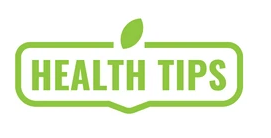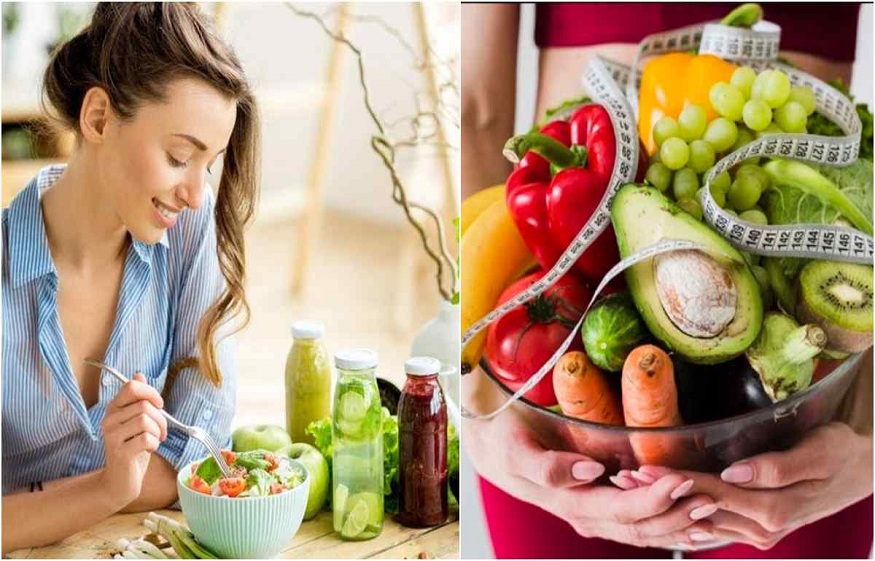Apart from breast milk, no food brings together all the nutrients necessary for the functioning of the body: proteins , lipids, carbohydrates, vitamins , minerals, trace elements, fibers .
They each cover, while complementing each other, the daily nutritional intake that your body needs to be in good shape. Another essential element not to be forgotten on a daily basis :
Another important tip: consume different foods from each family from one day to the next (for example for starchy foods: bread , pasta, rice, potatoes…). Do not panic if you are struggling to obtain the balance over a meal or a day: what matters is to have it over the week.
How to eat healthy: respecting the food pyramid!
The body does not need all foods in the same quantities. Some families must be very present (base of the food pyramid), others less (tip). This gives for each day:
But to constantly provide your body with the energy and nutrients it needs, it is necessary to distribute food intake throughout the day.
The proportions and quantities must be adjusted according to gender, age, condition ( pregnancy , breastfeeding , etc.), degree of activity, etc.
It is also important to take into account his appetite : we do not all have the same! It is necessary to respect the signals of hunger and satiety of his body. Also respect your way of life: some are content with a sandwich at lunch while others only have lunch at a restaurant … It doesn’t matter: you have to
Finally, tastes and habits matter a lot in the diet we choose. Dietary balance also means knowing how to navigate within (and between) the different food families.
How to eat well to lose weight?
Eating well means maintaining an appropriate weight, which is beneficial for our general health. But when you are overweight, it is sometimes necessary to rebalance your diet to lose weight. Beyond certain essential rules to respect (balance your menus, avoid industrial food, snacking, eat in reasonable quantities…), there are fat-burning foods to distribute in adapted menus throughout the week. .
Finally, a balanced diet must be combined with physical activity , whatever it is. It will prevent excessive weight gain and reduce the risk of certain diseases ( type 2 diabetes, cholesterol , etc.).
How to eat balance when you are picky?
Sometimes we are too used to fatty, sweet, salty, industrial food… And new habits are very difficult to establish. There are a few tricks to circumvent these bad reflexes.
Do you think that healthy foods have little taste, compared to fatty, salty and sweet foods that our taste buds love? It’s wrong ! A balanced diet does not necessarily mean “bland” . but they spice up all dishes without making you fat . Paprika, cumin, cinnamon, coriander… Select a few recipes to cook at home and stop in the spice section of your supermarket . You will be amazed!
How to have a healthy and balanced diet: our advice
Again, this is the basis of a healthy diet. For example, complete a rich menu with a salad and fruit . “We can also choose to make a difference in the evening, by composing a simple meal: pan-fried vegetables, slice of ham, and yogurt”, says Isabelle Darnis, dietician-nutritionist.
Eat varied and seasonal
Prefer local and French production to limit the quantity of food additives and pesticides necessary for the transport and storage of foodstuffs imported from distant countries.
Limit sources of trans fatty acids
Unfortunately, the French are increasingly fond of junk food , which contains a large proportion of trans fatty acids .
Reading the list of ingredients on the label reveals the presence of hydrogenated palm oil, rich in trans fatty acids and common in industrial biscuits;
Traditional oven, steam cooking , stewed in a casserole dish or in a pan, do not exceed 120°C when the recipe allows. With the microwave oven, acrylamide, a carcinogenic substance, cannot be formed because the temperatures reached do not exceed 100°C, the boiling point of water.
The container also counts: prefer utensils made of glass, ceramic, stainless steel, or non-scratched Teflon, because the wear of this material increases the risk of transmission of toxic perfluorinated compounds to the food.
Limit salt and therefore industrial food
“The more we use the food industry and catering dishes, the more we run the risk of being overdosed”, explain dietician Isabelle Darnis. And excess salt increases the risk of hypertension and cardiovascular disease.


